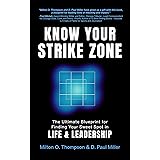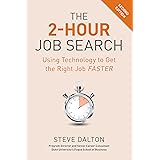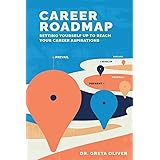Are you contemplating a career in accounting and finance, or perhaps looking to advance your existing role within the industry? The world of accounting and finance is dynamic, offering diverse pathways and continuous opportunities for growth, as recently discussed in the Future Connect Bridging the Skills Podcast featuring Finance Manager Andy Murray. His journey, along with insights into the profession, highlights that success isn’t solely defined by traditional academic routes. This article delves deeper into the essential aspects of building a thriving accounting career, drawing inspiration from Andy’s experience and expanding on critical areas for aspiring and seasoned professionals alike.
Navigating Your Entry into Accounting and Finance
Andy Murray’s career trajectory vividly demonstrates that an impactful finance career often begins from unexpected places. Starting as an office administrator with a blend of administrative and finance tasks, he strategically leveraged practical experience while pursuing his AAT qualification. This hands-on approach allowed him to seamlessly integrate theoretical knowledge with real-world application, rapidly accelerating his progression to Finance Manager. This narrative powerfully counters the common misconception that a university degree is the only gateway into this rewarding field.
1. **Embracing Diverse Entry Points:** Many individuals falsely believe that an accounting degree is an absolute prerequisite. However, as Andy and Louise emphasize, alternative qualifications like the AAT (Association of Accounting Technicians) offer an exceptional foundation. The AAT route, for example, is globally recognized and provides practical, job-ready skills that employers highly value. It covers core areas such as bookkeeping, management accounting, and tax, preparing learners for immediate contribution.
2. **Exploring Specialized Pathways:** Beyond AAT, the ICB (Institute of Certified Bookkeepers) route caters specifically to those interested in self-employment or working in practice. These vocational qualifications provide targeted skill sets, allowing individuals to specialize earlier in their careers. Whether you envision working independently or as part of a larger firm, these routes offer structured learning that can be more accessible and cost-effective than a traditional university degree, removing significant barriers for many aspiring professionals.
The Vast Landscape of an Accounting Career
One of the most compelling aspects of pursuing an accounting and finance profession is the sheer variety it offers, making it far more dynamic than often perceived. It’s not just about crunching numbers; it’s about strategic thinking, problem-solving, and providing crucial insights that drive business decisions. The profession spans numerous functions and sectors, allowing individuals to find a niche that truly aligns with their interests and strengths.
Unpacking Different Accounting Functions
Andy correctly points out the extensive range of roles available within accounting. Understanding these different functions is crucial for anyone considering an accounting career:
- Financial Accounting: This involves recording, summarizing, and reporting financial transactions to external stakeholders, such as investors, creditors, and regulatory bodies. The output often includes financial statements like the balance sheet, income statement, and cash flow statement, adhering to standards like IFRS.
- Management Accounting: Focusing internally, management accountants provide financial information and analysis to managers for decision-making purposes. This includes budgeting, forecasting, cost analysis, performance measurement, and strategic planning, all aimed at improving operational efficiency and achieving organizational goals.
- Taxation: Specialists in tax ensure compliance with tax laws, prepare tax returns, and offer strategic advice to minimize tax liabilities for individuals and businesses. This area requires a deep understanding of complex and constantly evolving tax legislation.
- Audit: Auditors examine an organization’s financial records to ensure accuracy, compliance with regulations, and adherence to accounting standards. This provides assurance to stakeholders and can involve both external (independent firms) and internal (within the organization) roles.
Diverse Industry Sectors
The beauty of an accounting career also lies in its portability across various sectors. Whether you prefer the fast pace of corporate life or the mission-driven environment of non-profits, accounting skills are universally required:
- Industry: Working directly for a commercial business, managing its internal finances. This offers insights into a specific company’s operations and strategy.
- Practice: Joining an accounting firm that provides services to multiple clients, offering exposure to diverse businesses and challenges.
- Public Sector: Working for government bodies or public institutions, often involving unique reporting standards and budgetary considerations.
- Charity Sector: Supporting non-profit organizations in managing their funds, ensuring transparency, and maximizing impact.
The opportunity to specialize or move between these functions and sectors provides a challenging yet immensely rewarding professional journey, constantly stimulating growth and learning.
Cultivating Skills for Leadership and Progression
While technical proficiency is the bedrock of any successful finance career, true progression into leadership roles demands a robust set of soft skills. Andy Murray emphasizes that it’s “not just about technical skills,” and this couldn’t be more accurate. Developing these interpersonal and problem-solving abilities is paramount for ascending the professional ladder.
3. **Beyond Technical Expertise:** Mastery of technical skills, such as double-entry bookkeeping, financial reporting standards, and utilizing software like Sage 50 and Excel, is non-negotiable. However, to truly excel and lead, professionals must also hone their “soft skills.” These include effective communication, allowing you to articulate complex financial information clearly to non-finance colleagues, and presentation skills, crucial for conveying insights to senior management or clients.
4. **The Power of Soft Skills:** Teamwork is vital in collaborative environments, enabling efficient project completion and knowledge sharing. Problem-solving skills are continuously tested, whether diagnosing discrepancies in financial statements or devising strategies to optimize cash flow. Furthermore, leadership entails demonstrating a “roll-your-sleeves-up” mentality, showing a willingness to tackle any task and support team members, fostering a positive and productive team dynamic.
Many professional development programs, including skills bootcamps, integrate these soft skills into their curriculum, understanding that a well-rounded professional is indispensable. They prepare learners not just for the technical demands of the job but also for the interpersonal dynamics of the workplace, equipping them for roles from junior positions to leading small teams.
Staying Future-Ready: The Evolving World of Accounting and Finance
The accounting profession is experiencing a rapid transformation driven by technological advancements and evolving regulatory landscapes. To maintain relevance in an accounting and finance role over the next 5 to 10 years, professionals must proactively adapt and embrace continuous learning. This forward-thinking approach ensures not only job security but also expanded opportunities within the field.
5. **Technological Integration:** The rise of automation, artificial intelligence (AI), and advanced software is reshaping traditional accounting processes. Tasks like data entry and reconciliation are increasingly automated, freeing up accountants to focus on more analytical and strategic roles. Proficiency in data visualization tools like Power BI, along with understanding how to leverage AI for predictive analysis and fraud detection, will become standard expectations.
6. **Regulatory and Ethical Imperatives:** Staying abreast of updates to international accounting standards (IFRSs) is crucial, as these regularly change and impact how financial information is reported. A significant and growing area of focus is Environmental, Social, and Governance (ESG) reporting. With new legislation and IFRSs emerging for ESG, professionals must understand how to integrate these non-financial metrics into financial statements, providing a more holistic view of an organization’s performance and sustainability efforts.
Embracing these shifts means continuous professional development is no longer optional but a necessity. Whether you’re just embarking on your accounting career or have years of experience, a commitment to lifelong learning will be your greatest asset in the ever-evolving world of accounting and finance.
Andy Murray’s Career Court: Your Accounting & Finance Q&A
Do I need a university degree to start a career in accounting and finance?
No, you don’t always need a university degree. Qualifications like the AAT (Association of Accounting Technicians) offer a recognized and practical foundation for entry into the field.
What types of roles can I find in an accounting career?
Accounting offers diverse roles such as Financial Accounting, Management Accounting, Taxation, and Audit, each focusing on different aspects of financial information.
Besides technical knowledge, what other skills are important for accountants?
Beyond technical skills, ‘soft skills’ like effective communication, teamwork, problem-solving, and presentation skills are crucial for career progression and leadership.
How is technology impacting the accounting profession?
Technology like automation and artificial intelligence (AI) is transforming accounting by automating routine tasks, allowing accountants to focus more on analysis and strategy.









